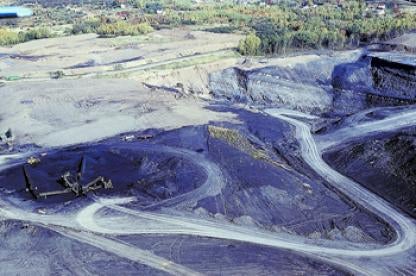Mingo Logan decision creates uncertainty in Clean Water Act permitting program
In a surprising reversal, on April 23, 2013, the U.S. Court of Appeals for the District of Columbia Circuit overturned a lower court order issued on March 23, 2012, in the case of Mingo Logan Coal Company v. U.S. Envtl. Prot. Agency, Civil Action No. 12-5150; 2013 U.S. App. LEXIS 8121 (D.C. Cir. April 23, 2013). In the lower court, District Judge Amy Berman Jackson ruled that the U. S. Environmental Protection Agency (“EPA”) did not have the power to retroactively “veto” a Clean Water Act § 404 “dredge and fill” permit after it was issued by the U.S. Army Corps of Engineers to Mingo Logan Coal Company for its Spruce No. 1 coal mining operation in Logan County, West Virginia. The appeals court decision reverses that ruling and reinstates EPA’s veto subject to Mingo Logan’s opportunity to pursue a challenge to the stated grounds for EPA’s decision.
In the earlier opinion, Judge Berman wrote that EPA’s claimed authority to revoke a § 404 permit that had been issued years earlier was “stunning,” and that the government’s arguments in defending such an action were “entirely disingenuous.” The lower court also found that if such an arrogation of power was upheld, this would “leave permittees in the untenable position of being unable to rely upon the sole statutory touchstone for measuring their Clean Water Act compliance: the permit.” The appeals court was apparently unmoved by such concerns.
Permit History. Mingo Logan’s predecessor, Hobet Mining, Inc., applied for a § 404 permit in June 1999 to allow the placement of overburden material from the Spruce No. 1 mine into fills that would affect three small streams. EPA expressed initial concerns that the draft Environmental Impact Statement (“EIS”) issued by the Corps in 2002 did not adequately address the “significant and unavoidable” environmental impacts of the proposed mining-related fills. However, EPA expressly declined to exercise its power to “veto” the permit under § 404(c) of the Clean Water Act, which states as follows:
The Administrator is authorized to prohibit the specification (including the withdrawal of specification) of any defined area as a disposal site, and . . . to deny or restrict the use of any defined area for specification (including the withdrawal of specification) as a disposal site, whenever he determines,… the discharge into such area will have an unacceptable adverse effect on municipal water supplies, shellfish beds and fishery areas…, wildlife, or recreational areas.
Since EPA did not exercise that option here, the Corps issued a § 404 permit to Mingo Logan on January 22, 2007, effective through December 31, 2031. That permit authorized Mingo Logan to place fill material into three stream segments -- Pigeonroost Branch, Oldhouse Branch, Seng Camp Creek, and their tributaries. As a part of standard language, the permit also stated that the Corps "may reevaluate its decision on the permit at any time the circumstances warrant" and that "[s]uch a reevaluation may result in a determination that it is appropriate to use the suspension, modification, and revocation procedures contained in 33 CFR 325.7.” The permit did not refer to any possible future EPA action affecting its validity.
Nevertheless, in 2009, EPA asked the Corps to use its discretionary authority to suspend, revoke or modify Mingo Logan’s permit based on continuing concerns about the project's potential to degrade downstream water quality. The Corps declined to do so. Therefore, in April 2010, EPA gave notice that it intended to effectively revoke the permit using its “veto” power. In January 2011, EPA formally exercised its “veto” authority and withdrew Mingo Logan’s authorization to deposit fill material into two of the three streams covered by the permit.
The Appeals Court Opinion. Judge Karen LeCraft Henderson, writing for the three judge panel of the appellate court, overturned the ruling of the District Court. The court explained that while the Corps has the authority to issue § 404 permits, § 404(c) gives the EPA “a broad environmental ‘backstop’ authority over the [Corps’] discharge site selection.” The court found that Congress unambiguously intended to confer on the EPA broad power to retroactively “veto” a previously issued permit by using the word "whenever" to describe EPA’s authority to prohibit/deny/restrict/withdraw a disposal area “specification” if EPA determines, in its sole judgment, that the project will have an “unacceptable adverse effect” on the environment. The court also determined that EPA has consistently maintained this interpretation of § 404(c) for thirty years, although it had never before exercised this “veto” power after the Corps had issued a § 404 permit.
The court rejected Mingo Logan’s several arguments for why Congress did not intend to grant EPA the power to effectively withdraw permits previously issued by the Corps and relied upon by the permit holder in beginning construction of a project. In doing so, the court noted that the Corps “has made clear by joining EPA in this litigation that it agrees with EPA’s interpretation.”
This opinion may not represent the final decision on the issue. Mingo Logan could ask for reconsideration, and might seek to have the appeals court rehear the case before all the judges of the court, known as an en banc proceeding, instead of the three judges who issued the opinion. Mingo Logan could also ask the Supreme Court of the United States to review the decision.
Future Implications. Although the § 404 permit at issue was for a coal mining operation in West Virginia, this decision has serious implications beyond the coal industry. In mountainous regions like Appalachia, virtually any project involving creation of flat areas for construction or otherwise will affect a stream in some fashion, and thus require a § 404 permit from the Corps. Such projects include building roads, schools, housing developments, industrial parks, and shopping centers. With this decision, all such projects are under threat of losing permit authorization whenever EPA, in its sole discretion, may decide that the project will have an “unacceptable adverse effect” on the environment -- even though the Corps concluded differently before issuing the permit.
In short, the Corps’ exclusive authority to issue such permits has now been drastically limited by EPA’s ability to veto such permits at any time after their issuance. Thus, the federal government’s role in regulating economic activity in Appalachian states has been further solidified by the federal appeals court. Those engaged in such projects, including those in the planning stage and current permittees who have started construction, will need to be even more carefully attuned to EPA comments and accurately assess the weight of its concerns in order to have confidence moving forward.



 i
i


